A reader named Bethany sent in a question about Mario & Luigi: Bowser’s Inside Story that’s actually a great example of how difficult it can be to translate simple jokes if the jokes have to fit the logic of a scene:
Midbus gives two lines of dialogue containing the name of a classic Mario enemy (the first being the Koopa Troopa, and the second being Dry Bones). The Goombas, in confusion, summon the relevant enemy.
This is quite possibly the only joke in Bowser’s Inside Story that feels forced and odd, but after reading a lot of your site, I have the hunch that the joke was much smoother in the Japanese game.
For reference, here’s the first line Midbus says about Bowser after Bowser shows up to ruin the fun. The intended joke is that saying the name “Koopa” out loud caused a Koopa Troopa to mistakenly show up:
After this, Midbus says another line to Bowser and uses the phrase “dry bone”. Saying this out loud causes a Dry Bones enemy to mistakenly appear too:
These jokes do feel a bit forced, so the question is: what were these lines like in the original Japanese?
Japanese Koopa Troopa Joke
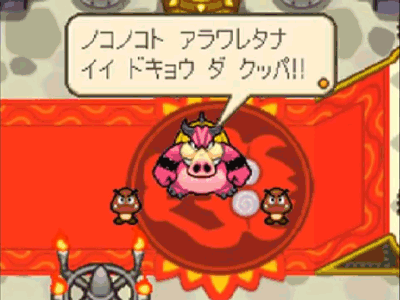 | 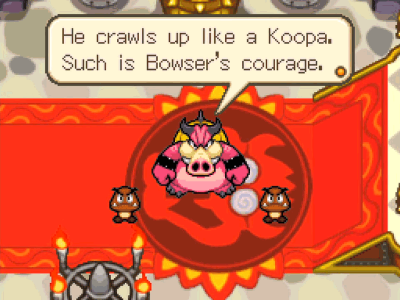 |
| Japanese Version (basic translation) | English Version |
| Showing up here nonchalantly… You got some guts, Koopa!! | He crawls up like a Koopa. Such is Bowser’s courage. |
First, it’s probably important to note that while we call him “Bowser” in English, that appears to be more of a localized name that dates back to the original Super Mario Bros. game, where he was called “Bowser, King of the Koopa”. In Japan, he’s known almost exclusively as “Koopa”, however. Normally this name difference rarely matters, but in this line we see “Koopa” being used different ways in each language.
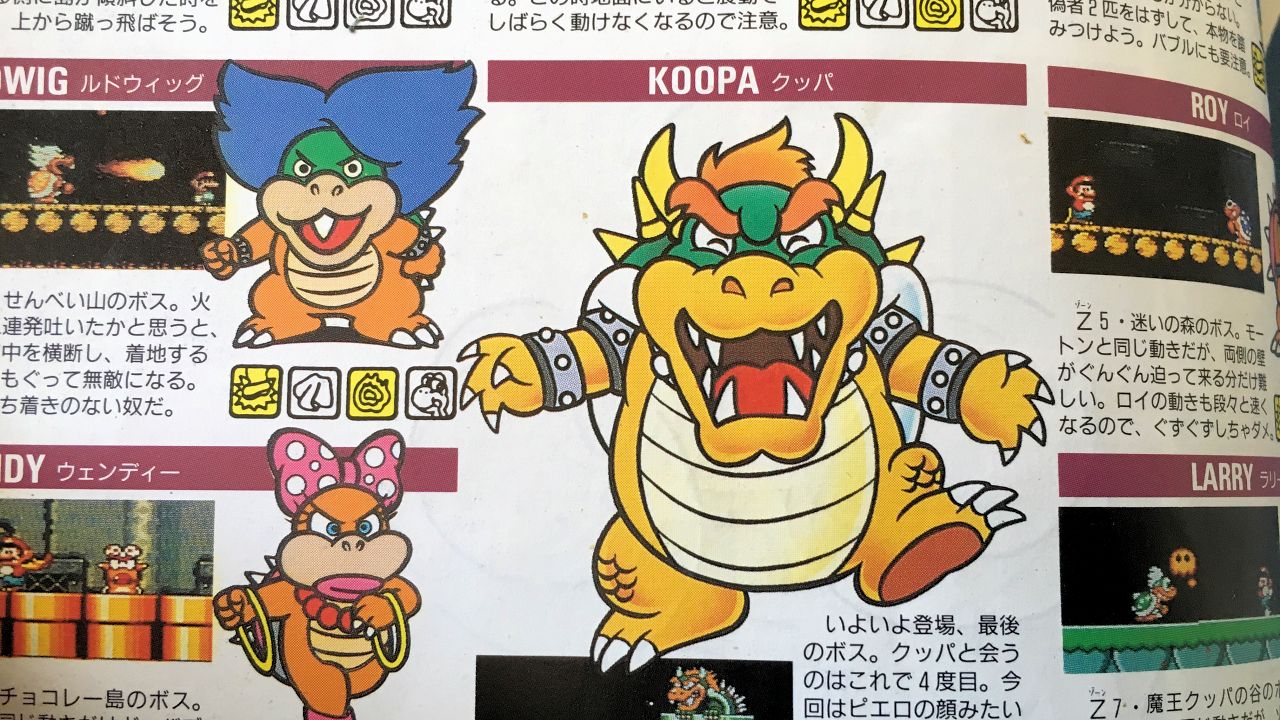
Anyway, in Japanese, Midbus uses the common phrase “noko noko”. This is often used as an adverb for when someone does something nonchalantly, carelessly, or brazenly – I often see it translated as “to waltz right in and do something”.
”Noko Noko” also happens to be the name of the standard turtle enemy in the Super Mario Bros. series, which makes sense given that they nonchalantly walk back and forth waiting to get stomped on. So, by using the phrase “noko noko” when talking about Bowser showing up, one of the standard turtle enemies mistakenly thinks its name was called.
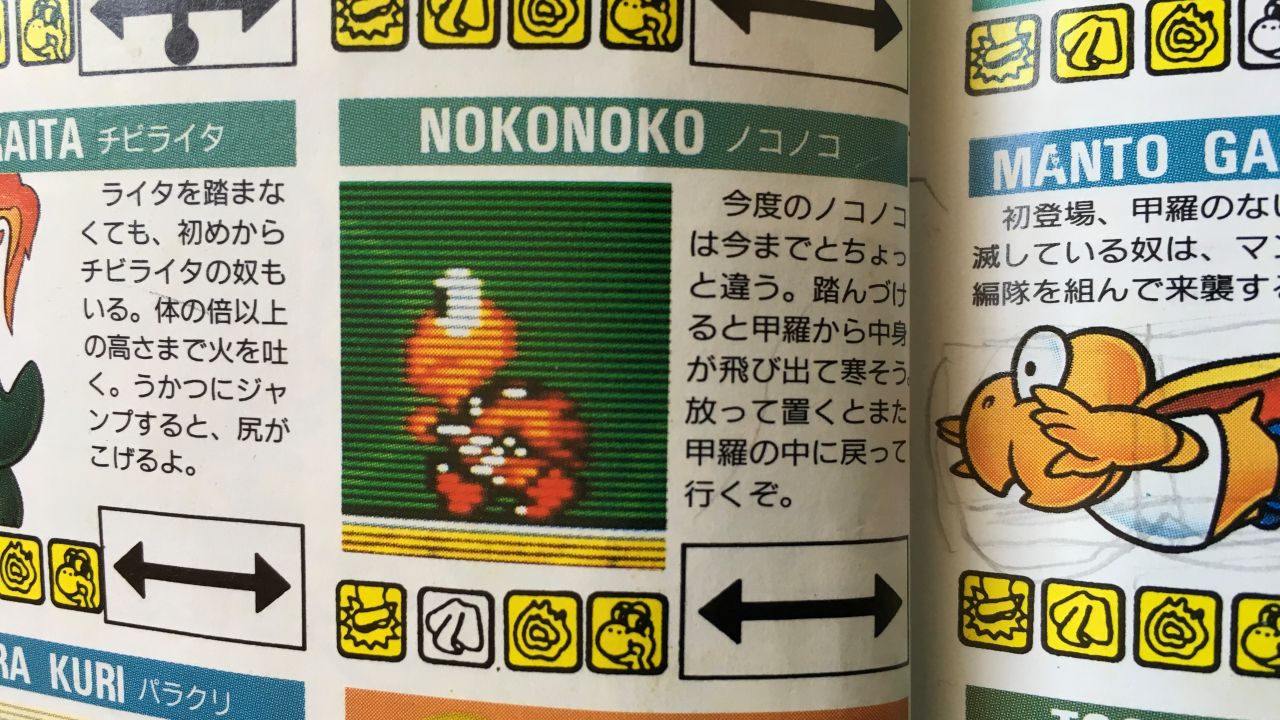
The Japanese joke works really well and flows naturally. But because we call the Noko Noko enemies “Koopa Troopas” in English, making the same joke work in translation becomes extremely tough.
Unfortunately, when jokes are especially difficult to translate they will often feel forced, which is what happened here. In fact, it looks like the localizers decided to forego most of the joke by inserting the name “Koopa” directly into the line. Off the top of my head I can’t think of much beyond trying to force the word “koopa” with something like “…flew the coop– Uhh…” which probably isn’t much better.
Japanese Dry Bones Joke
 | 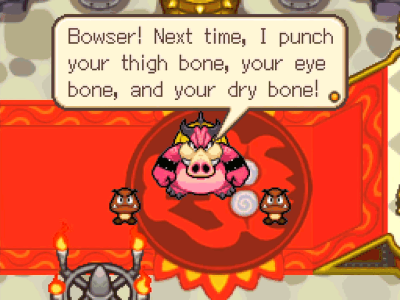 |
| Japanese Version (basic translation) | English Version |
| Koopa! Next time for sure, I’m gonna kechon-kechon you and keron-keron you and karon-karon you! | Bowser! Next time, I punch your thigh bone, your eye bone, and your dry bone! |
In this Japanese line, Midbus is threatening Bowser and explaining the kind of stuff he’s going to do to Bowser by using unusual phrases that are vaguely threatening.
”Kechon-kechon” refers to beating someone in a fight or argument, “keron-keron” appears to be a much vaguer threat, and “karon-karon” is most likely a new word entirely. The point of the line was to reach the “karon-karon” part, though, because “Karon” is the Japanese name for the Dry Bones enemy in the Super Mario Bros. series. This is what causes the Dry Bones monster to mistakenly think its name had been called.
These sorts of weirdly phrased threats are common in Japanese entertainment, and they’re almost always a challenge to translate directly. In this case, the threat also contains a joke, so it makes even more sense that the English line wound up significantly different. Although the English joke feels a little forced, it doesn’t seem much more forced than the original joke, and both seem to be in line with Midbus’ unusual character. Plus it sounds like Midbus is a minion of Fawful, who’s famous for saying crazy things too:
It’s hard to explain language jokes in simple terms, but hopefully this helps clarify the original Japanese jokes of this scene and helps answer Bethany’s question. Translating jokes in general can be a real challenge, and this is a good example of how it gets even tougher when the jokes are constrained by events and reactions in a scene. If the Koopa Troopa and Dry Bones characters weren’t part of the scene, it’d be simple enough to insert more generic jokes into the translation, but since they’re a part of the comedy of the entire scene the joke text HAS to fit the situation.
Anyway, sometimes you can spend an entire day on a single joke and still not reach anything as clever as the original. So I have no doubt that the localizers struggled and worked hard to come up with English phrases that would fit the events of this scene too. Unfortunately I can’t think of anything much better at the moment, but I’d love to hear what alternatives you might have, so share your suggestions in the comments!




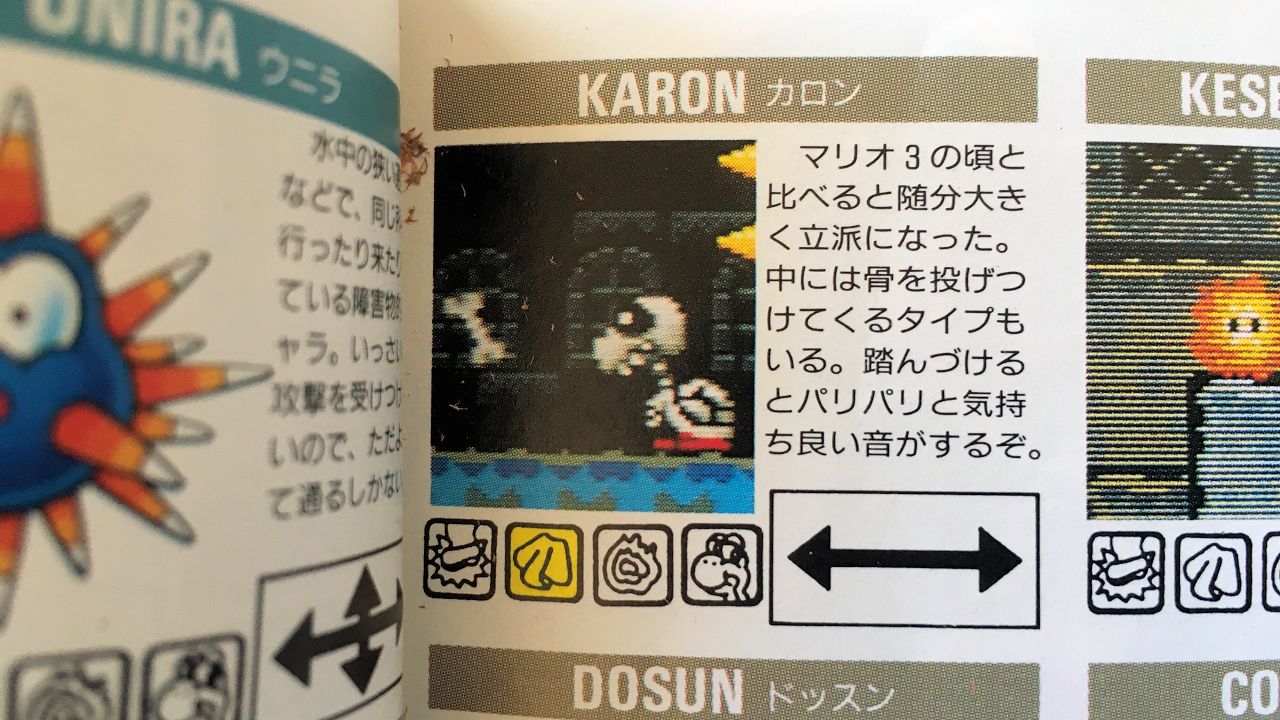
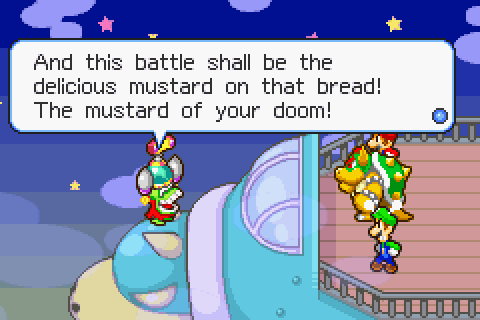
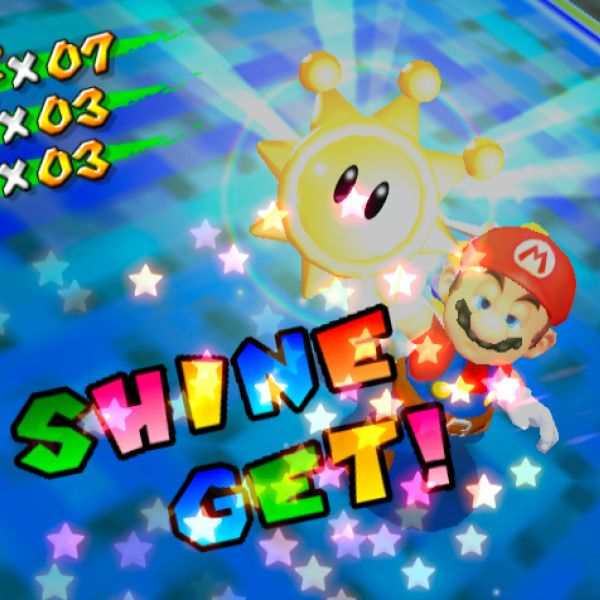
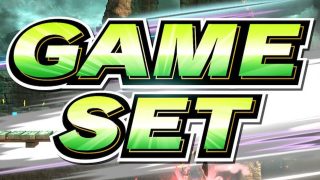
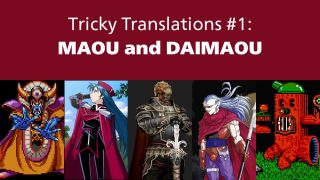
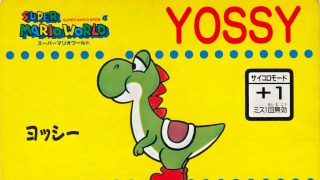
Hello! I’m from Italy, and after reading this article I was trying to remember how the lines were in Italian, but luckily there was an Italian walkthrough on Youtube, so I could get the lines. Here they are:
“Bowser ha coraggio… per essere grosso stupido Koopa!”
(“Bowser got courage… for a big, dumb Koopa!”)
“Bowser! Io distrugge: stacca guscio tartaruga, rompe osso.”
(“Bowser! Me destroy you: detach turtle shell, break bone.”)
(Explanation on this one: The Italian name of Dry Bones is “Tartosso”, a portmenteau of “Tartaruga” and “Osso”, meaning respectively “Turtle” and “Bone”. So basically both the two Goombas and the passerby Dry Bones think he said “Tartosso”. A bit forced, I know. Also, Midbus speakes in a cavemen/Dinobot-like way in Italian, instead of the “weird Engrish stuff” they went in English – and on the same road, Fawful instead speaks in a normal way, albeit still saying weird crap in the meanwhile – I remember that the “Mustard of Doom” speech in the first game was replaced with something like “You are the cheese on Cackletta’s macaroni plan and this battle will be the cherry on top of the cheesecake”)
What I find interesting about this is that it’s commonly believed that the English versions of the previous two M&L games were developed first, based on how said versions lack certain really useful features from versions in other languages and how those other versions have slight difficulty/cosmetic tweaks (which are somewhat reminiscent of proofreading). If that happens to be the case for Bowser’s Inside Story (and, by extension, Dream Team and Paper Jam), then given how this article seems to indicate the Japanese script having been the first one written, I kinda wonder if any similar translation issues popped up with the other M&L games and how they were developed, seeing as how it would be odd for a game to be programmed for English audiences first but start off with a Japanese script.
Sonic games are written in English first.
Depends in the game. It is mostly true about Colors and Generations.
Yup, Mario and Luigi 1 and 2 had their Japanese releases later apparently.
AlphaDream is a Japanese developer. Interestingly, the final builds for the US/EU versions of ML:SS (GBA) are dated October 4, 2003 and the JP build October 16, 2003…it seems they did some last minute touch-ups for the JP version, but that still left a full month before actual release in all regions (mid-to-late November). I wonder what happened.
https://tcrf.net/Mario_%26_Luigi:_Superstar_Saga#Build_Dates
I frequently listen to the One Piece Podcast, which has the official translator for the manga on almost every week. This article reminded me of a bunch of his stories on how he tries to translate some of the odd jokes that pop up in that series and of the creative solutions he comes up with.
Ah, thanks for the translation. I had a vague idea that ‘nokonoko’ would work out, but it’s interesting to see how they fit Karon in- and all things considered, that’s not too bad.
And yep, I’m fairly sure it being a visual joke was what strained it.
”That oversized Koopa walks in here like he owns the place!”
”You’ll be sorry when we hang you out to dry, bonehead!”
I haven’t played this game, but both of these lines seem like they really could work better!
When I saw the Italian versions of the lines that Phantom Dusclops posted above, I realized what I think the problem is with the first line in English, which is that the translators overcorrected something. In the English localizations for the series, it’s established that the name Bowser is used instead of クッパ, so the translators probably got used to replacing the name 「クッパ」 with “Bowser” whenever it appeared, and replacing 「ノコノコ」 with “Koopa”. However, Bowser is still established as being part of the species that the name “Koopa” refers to in English, so it would still make sense to refer to him as something like “that oversized Koopa” or “that big, dumb Koopa”, and then have some random Koopa assume Midbus was talking to him.
With the second line, though, the Italian version, in order to work, seems to require both that Midbus speaks in caveman speak and that the localized version of Dry Bones’ name is entirely made up of words that can be interpreted as body parts. Neither of those is the case in English (and the latter was established as not being the case long before this game was made,) so it would probably be better to use a different approach, like your “bonehead” line.
That’s the best version of the scene I’ve ever read!
“Off the top of my head I can’t think of much beyond trying to force the word “koopa” with something like “…flew the coop– Uhh…” which probably isn’t much better.”
This actually would have worked in the old Super Mario Bros cartoon since the kept him as Koopa in that and “Koopa flew the coop!” was a common phrase they used to exclaim he got away after his schemes got foiled. Funny how the cartoon is reviled, but it kept his original Japanese name of Koopa (though they changed Peach to Toadstool as a reversal) where such a joke would have fit perfectly.
So Midbus’s blabbering of kechon-kechon and so on is like saying, “I’m going to strangle him, mangle him and just plain gangle him!” or something less coherent like, “I’m going to frazzle, razzle, smazzle and dazzle that sucker!”
Karon huh? Looks like the Japanese named Dry Bones after Charon the ferryman from Greek myth.
The cartoon(I assume you mean either 3 or World, both of which I watched religiously) didn’t really “keep him as” Koopa. That was what EVERYONE called him.
I never heard him called anything other than “King Koopa” until Mario 64 came out with a fairly aggressive attempt to institute some name changes.
Incidentally, I still call him King Koopa. And I will never refer to the princess as a fruit, because her friggin’ name is Princess Toadstool. Get off my lawn, darn whippersnappers, etc.
(In seriousness, you can probably tell a lot about someone’s age by the names they use for Mario royalty. I was four when the Nintendo launched in America, so it was a cultural touchstone for most of my childhood.)
There were three cartoons: The Super Mario Bros. Super Show, Super Mario Bros. 3, and Super Mario World. Also, every English game and manual referred to King Koopa as “Bowser”.
Oh, right, the Super Show segments. I tend to forget those, since it was all about Zelda on fridays.
And I’m aware what the manuals said. They are the only place I know of that Bowser was ever used before Mario 64. Everyone called him King Koopa.
In Super Mario World, they edited a sprite that said “KOOPA” to “BOWSER”.
Yeah, and in the intro to the game, it says “Looks like Bowser is at it again!” It’s said throughout the game too but I remember that as the first time I’ve heard him referred to Bowser in a game. So it wasn’t just the manuals.
Notice how Lupus753 said “every English GAME and manual”. The games before Mario 64 called him Bowser too (just from the top of my head, Super Mario World and Super Mario RPG, but probably others too). The only sources that called him Koopa outside of Japan (which no one here knew about back then) were the cartoons and live-action movie.
Just because everyone you know called him Koopa doesn’t mean “everyone” did. I know people close to your age who called him Bowser. I’m a little younger than that but I also called him Koopa as IIRC, the NES games didn’t refer to him by name outside of manuals, and I watched the cartoons before I played Super Mario World.
Man, the movie was really good.
Actually, there is a point in the The Adventures of Super Mario Bros. 3 cartoon where he refers to himself as “King Bowser Koopa” in the episode where they steal a convict from the real world and he introduces himself to him, I believe.
Yep. While he was always Bowser in the games here, he was King Koopa in all three cartoons, but they’d slip “Bowser” in on occasion in the latter two, usually alongside his surname. One time in The Adventures of Super Mario Bros. 3, Mario called him “Bowser Koopa.” By using the full name but leaving off his title, I wonder if Mario was supposed to be particularly disrespectful or patronizing there.
Oh yeah, that’s right. Huh, interesting.
I haven’t played the game, but I thought of a substitute joke if you were to change it entirely, though it consists of a little black humor.
Perhaps have the koopa just coming to interrupt, as he and some of the other minions are trying to get something working (maybe a weapon or just some appliance in the castle). Impatient, Midbus gives them some generic advice on how to get it working (kick it, turn it off and on, jiggle the plug, something like that), and the troopa leaves. Later, the dry bones comes up and tells him that it didn’t go well, implying this is the same minion. Midbus just tells him to go away because he’s busy.
I just got the idea when that specific combination of enemies appear in that particular order, and reading what the joke was, it seemed like one of those instances where you needed a completely new joke, because the original just doesn’t work in English.
I want to not laugh. But this is just too damn funny…
Oh my god that is genius lmfao.
You’d think Nintendo would’ve gone with just that!
R.I.P alt text?
Yeah, I’ve been doing a lot less alt text this year as it sometimes turns into a big chore that slows things down. I still do it occasionally when there’s extra time though.
One does not noko noko into Mordor.
Also, does the Japanese name of the game really have 3 exclamation points at the end? Did they all have that? Did the first have one, second two, and third three?
According to Japanese Wikipedia the third one is the only one to have exclamation points.
Huh, that’s weird…Guess they were just REALLY excited for the third one.
Well, it is the best one…
This reminds me of a Pokemon pun that wouldn’t translate well.
Misty: I think I see another bug! Gross!
Ash: Maybe it’s a… COWterpie!
In the original Japanese, it played like so:
Misty: Bug, bug, bug, bug! (mushi)
Ash: …Cow? (ushi)
Such translation efforts like this one I refer as “Cowterpies”, where they try to preserve the pun, but fall flat. I think I like Tariq Lacy’s renderings the best.
There’s a pun in an episode of Fullmetal Alchemist 2003 involving the Japanese words for “worm” and “armour” sounding similar. A fansub changed the pun to “farmer”, but the English dub said “wormy-er” for some reason.
I can’t help but remember how the Italian dub failed to keep any kind of pun on that scene.
Misty: I hate all these bugs!
Ash: What about a cow-sized one?
And say that “Cowterpie” could be translated in Italian as “Muccaterpie”…
You should definitely compare Mario and Luigi games more. It’s like a goldmine for translation comparisons if you ask me.
I would have gave him an accent so that ‘trooper’ can come out as sounding like ‘troopa’, and I would have changed the baddies that come on screen.
“Oy. Betcha think you’re a real trooper, huh, mate?” *A Koopa Troopa shows up*
“I’ll be sending you packing with a boo-hoo-hoo and your tail between your legs” *A Boo shows up*
The dialogue is fine; they just needed to make it so Midbus is *shouting* the parts relevant to the enemies that show up.
“He crawls like a KOOPA!! Such is Bowser’s courage!”
“You rang?”
“Bowser! Next time I punch your thigh bone, your eye bone, YOUR DRY BONE!”
“Ummm…Did you call….”
Something among those lines would simultaneously emphasize his disdain and make more sense for the enemies’ arrival, me thinks.
This is probably completely wrong but could けろんけろん be insinuating 蹴る, to kick and かろんかろん come from 軽んずる / 軽んじる, to belittle (despise, look down on).
Those would fit from a quick search on jisho.org but as I can’t speak japanese it’s probably not that simple.
Plus jisho doesn’t really give you a good grasp of words – just single words in english rather than any explanations. In fact I find that for a lot of online dictionaries like leo.org for german is awful and wordreference.com for spanish. Single word definitions really aren’t good enough.
Surely there have to be useful foreign language english dictionaries online somewhere? My old school paper german english dictionary is far better than anything online and yet it is extremely basic and limited but at least it gives example meanings of the word rather than just a few random single word suggestions where you have no idea which one is correct (i’m looking at you leo).
Hmm so this explains why the shell weapon in Mario RPG is called a nok nok shell. I always wondered about that.
also, the exploding turtle enemies in Super Mario land are called ‘Noko Bomb’ or something similar
On a similar note, in Japan Chain Chomps are called “Wan-wan” which is the sound of a dog barking.
This is why the Chain Chomp in Link’s Awakening is called “Bow Wow”
If it were me, I’d translate that joke as:
“That Bowser is a real Trooper!”
And
“But he makes me so mad, I’d love to pick his bones!”
Sure, it still sounds awkward AF, but it’s a little more subtle now.
In the French version, the joke is lost : Midbus says something like “Bowser must be planning something fishy” and “Bowser ! I’m gonna show you what I’m made of !” Because there aren’t words close of Koopa and Skelerex (French for Dry Bones), the two Goombas calls themselves the Koopa and Dry Bones. But strangely enough, the two Goombas THINK (they use the bubble used for thinking) their name. When I played the game, I thought they were using telepathy or something. So it’s really weird
What? i think the first joke is translated better in french, for the first one midbuss says «Bowser! Il manque pas de culot, il doit préparer un coup pas net…» (Tr: Bowser! He’s got a lot of nerve, he better prepare a cheap shot).
The joke works because un coup pas net (lit: a not clean shot/punch) is pronounced like un koopa net, so they hear midbuss as saying bowser better prepare a clean koopa so the koopa thinks they’re talking about him.
i typed this and realized someone else in the comments already explained it, so yeah just look at Travis’s explination
I found this kinda interesting, because while the Canadian French version (the version I played) drops the joke completely, the European French version carries the joke over almost perfectly!
In the European version, the first line goes “Bowser! Il manque pas de culot. Il doit préparer un coup pas net…”, where “coup pas” is what’s mistaken for “Koopa” (the line loosely translates to “Bowser! He’s got some nerve. He must be preparing some sort of attack…”, but still kinda sounds nonsensical, as it should).
The second line goes “Bowser! Tu vas voir c’que l’air explosif de Métaboss te réserve!”, where “c’que l’air ex…” is what’s mistaken for “Skelerex”, Dry Bones’ French name (the line loosely translates to “Bowser! You’ll soon see this explody-looking thing that Midbus has in store for you!”).
(There’s also this French let’s play video where the guy reads out the lines, so the “sounding-out” is more obvious: https://youtu.be/rCZzga1su6g?t=18m56s)
But the Canadian version seems to mostly be translated from the US English script, so the joke was lost there, too. The lines go like this: “Toi ramper comme un Koopa. Ça être le courage de Bowser?” (loosely translates to “You crawl like a Koopa. Is this Bowser’s courage?”) and “Bowser! Prochaine fois, moi frapper avec un poing ton paquet d’os!” (loosely translates to “Bowser! Next time, me hit your bone-sack body with my fist!”; it’s also odd since the only real Dry Bone reference is the “sack of bones” part).
I always found it interesting how something that, at first, seems completely out of place could make total sense in another version of the same game, even in the same language in this case.